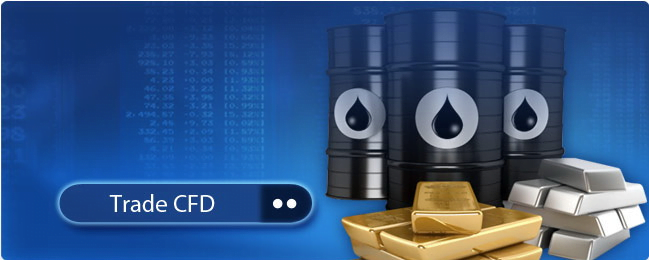
Unless you are an experienced trader, you may have probably never heard about CFD’s. Also known as Contracts for difference, these are specific contract which give traders the discretion to exchange the difference of an asset’s entry and exit price. In 2018 there are about 40 most popular CFD brokers in the world to trade with. Most of these contracts are useful when speculating on the Forex market but they can also be profitable when one is betting on other volatile assets which may include:
- Metals
- Oil
- Indices
- Currencies
Similarities and differences between CFD’s and Stocks
There are many benefits that traders may incur when they choose to trade CFD’s or even stocks. Flexibility, for example, is a key advantage of trading CFDs. It allows traders to not only select the currency or asset that they want to trade but also the values that they may want to stake on a trade. But what are some of the similarities and differences between these two?
Similarities
One of the primary similarities is that the two assets are traded over the counter. Although the trading of currencies is primarily done on currency exchange platforms, stocks and CFDs are mainly transacted over the counter. It is, however, worth noting that some brokers incorporate the trading of Forex currencies with selling CFDs on their trading platform. Most Forex brokers will choose to focus on one asset i.e. trading currencies or the Contract for differences.
Another key similarity between these two is that there is no physical transfer of assets. Unlike other trades where you may be required to physical purchase the assets, this does not occur in both CFDs and Stocks. This means that the sale and purchase of these assets are not only decentralized but are also done through a complex network of financial brokers.
Differences
Availability of leverage and margins is a major difference between these two assets. CFDs are, generally, a leveraged asset meaning that you only require a small deposit of the full trade in order to go long on a position. The advantage of trading on a margin is that your profits will be magnified but you should also note that your losses are also magnified. You could easily lose more than the capital you deposited. Stocks, on the other hand, are not a leveraged product and you can only purchase the stocks that your cash can buy.
Costs incurred will also vary significantly between these two trading assets. You are much more likely to pay higher fees and commissions when trading CFDs as opposed to trading stocks. In selling and purchasing stocks, you are only likely to pay a commission and small fee to your brokerage firm. When trading CFDs, you will meet a plethora of costs including
- Spreads
- Commissions
- Holding costs
- Market data fees
Spreads are compulsory when trading CFDs as it is basically the difference between your buying and selling price. Commissions, on the other hand, are only applicable when you are trading CFDs shares. A separate charge will be debited from the full exposure with most brokers offering a minimum commission charge of about £9. Holding fees are charged on any positions that are still open at the end of each trading day.
Best CFD brokers
CFDs are regarded as one of the easiest and profitable ways to trade stocks due to its short-term nature. You should still consider having the best CFD broker who will ensure you have an excellent trading experience. The top CFD brokers include
- XM
- Forex4you
- eToro
XM
A highly regulated Forex and CFD broker, founded in 2009. It is regulated by the Financial Conduct authority and the Australian securities and investments commissions. With a minimum deposit of $5 and a max leverage of 1:888, this is probably the best CFD broker . Furthermore, it also offers a real and demo account.
Forex4you
Formed in 2007, Forex4you has risen to become one of the best CFD brokers. Regulated by the FSC, the broker offers a leverage of 1:1000 as well as a $20 minimum deposit. It also has a real and demo account, for expert and novice traders respectively.
Etoro
Famed for its social trading platform, this is probably the best for novice CFD traders. The broker offer a minimum deposit of $50 but does not offer leverage to its clients.
With this information, you can deduce that CFD trading is an easy and profitable way to trade stocks, currencies, metals among others.


